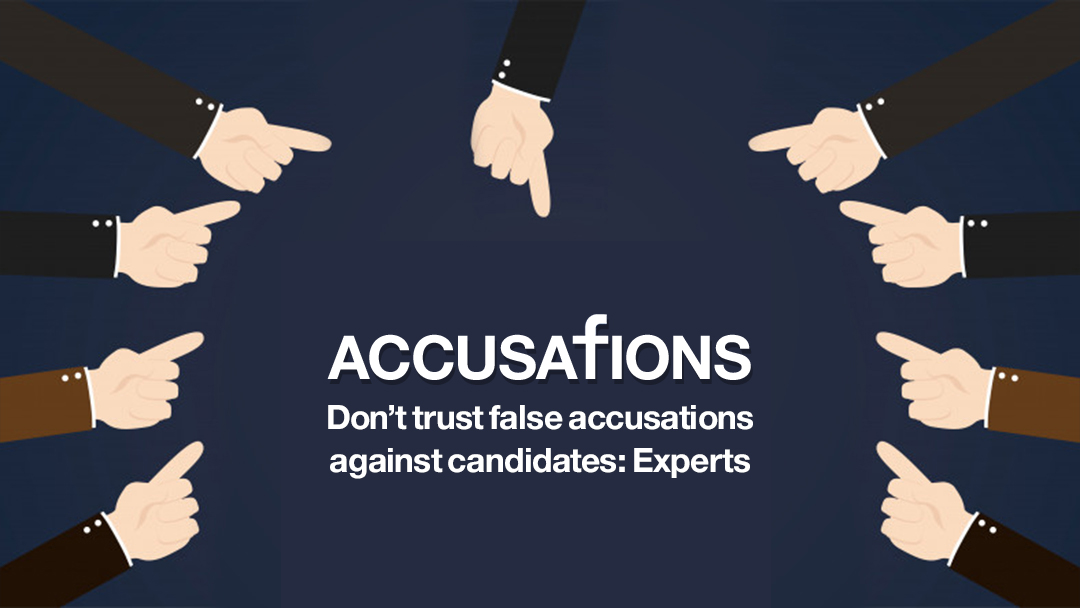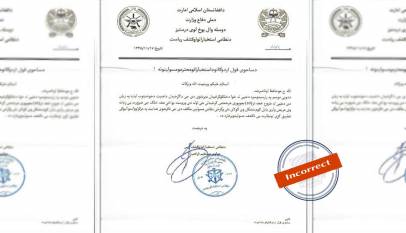Don’t trust false accusations against candidates: Experts
KABUL (Pajhwok): Experts say increasing accusations against presidential candidates in absence of evidence particularly on social media should not be trusted.
Accusations against presidential candidates without offering any evidence are a violation of the electoral law. Some people call social media, especially Facebook where such accusations are more often made as, ‘anarchy center’ and ‘house of ignorance’
Some experts believe accusations without evidence have no benefits for those who make them and would rather damage their own personality, while some others say such accusations have negative impact in the society and confuse the public and organs concerned should take action for stopping them.
The next presidential election is scheduled for September 28. Sixteen individuals including Ashraf Ghani and Abdullah Abdullah are candidates. One candidate joined another runner and Mohammad Hanif Atmar, another candidate, has stopped his electioneering.
Accusations against candidates
Some presidential candidates and their supporters accuse their rivals and some media outlets also do the same without providing evidence. These accusations maybe right or wrong, but they require supporting documents.
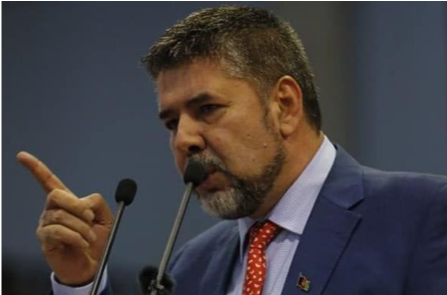
Rahmatullah Nabil, one of the presidential candidates, in a letter has accused Ashraf Ghani and Abdullah.
In his letter posted on his Facebook page, Nabil said, “Fome former government officials who have become allies of the unity government have dozens of corruption cases against them (1,700 major corruption cases) and says it in details about the plan to transfer the war to the northern parts of the country, both by internal and external enemies of Afghanistan.”
Nabil addressing Abdullah in his letter says, “I hope you did not forget the enemy’s long-term plan for the fall of Kunduz province and the nature of the collapse of this province as well as disastrous scenarios of the National Security Council (NSC) and my reports about the enemy’s plans for fueling ethnic, linguistic and intellectual discrimination.”
“I remember I told you several times that you call yourself a heir of Mujahideen and people should be informed and have a position on this, but you did not care, you and your shareholders damaged the country’s dignity for your own interests,” Nabil says in other part of his letter while referring to Abdullah.
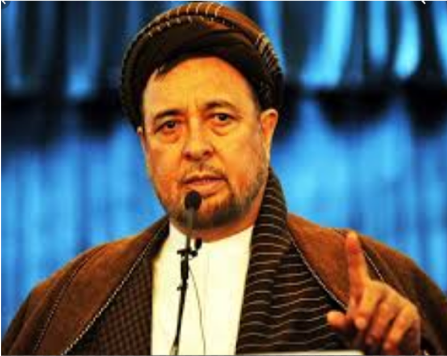
Mohammad Mohaqiq, former deputy presidential candidate of Hanif Atmar, who joined Abdullah’s ticket about a month ago, told a TV program that recent changes in ministries and local administrations were electoral bribe. He said the Presidential Palace was offering election bribe.
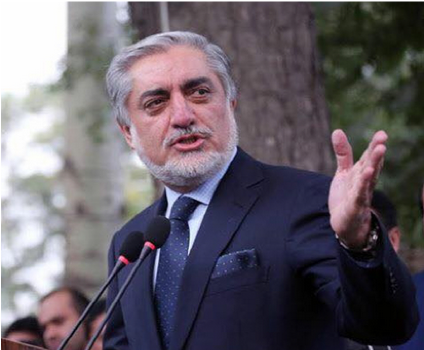
Dr. Abdullah Abdullah in an electioneering gathering in Deh Sabz district of Kabul claimed that Ashraf Ghani had requested money from traders for his election campaign and if they refused to pay the money, Ghani would introduce them to Attorney General Office (AGO) under various excuses.
However, he did not provide any evidence to prove his claims.
The Presidential Palace in a statement on September 15 rejected accusations made against Ghani and called them baseless.
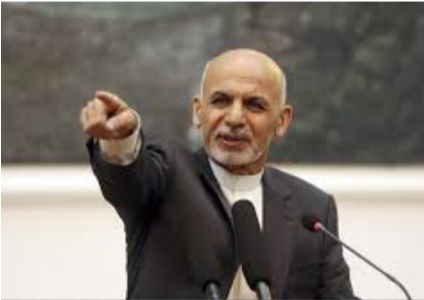
Ashraf Ghani in a TV program with Tolo News also called the CEO post of Dr. Abdullah Abdullah a troublemaker for him. However, Abdullah rejected Ghani’s claim.
None of these claims could be proved by valid evidence.

Facebook based accusations of candidates’ supporters
According to a Pajhwok Afghan News report, Facebook has turned into a good platform for sharing information in Afghanistan, but improper use of the social media network particularly by creating fake accounts has given birth to some problems for public such as getting confused by false accusations, promoting discrimination, cheating and harassing people.
A number of Afghan Facebook users propagate against some candidates and accuse them in order to gain support for their favorite candidates.
Pooya Nassim, in a Facebook post, referring to Ashraf Ghani’s team, said, “Murders, kidnappers, and law violators have joined Ghani’s team. Ignorant people still follows this psycho as they are blinded by the money and power.”

Sayed Aseer Hallaj, another Facebook user, accused presidential candidate Faramarz Tamanna of spying for Iran but he did not provide evidence.

Shahid Atiqullah, another Facebook user, said Abdullah was seeking votes by supporting wanderers and condemning Afghan security forces. But he did not prove his claims.

He also called presidential candidate, Gulbuddin Hekmatyar, as a ‘skillful murderer’ but offered nothing in support.

However, some other Facebook users criticize baseless accusations against others on social media.
Shafiq Wardak, in a Facebook post said, “Freedom of speech does not mean to insult elders, scholars and leaders.”
“Some people misuse freedom of expression and have turned Facebook into the house of ignorants, they go beyond limits of humanity, I do not know why they do so?” he said.
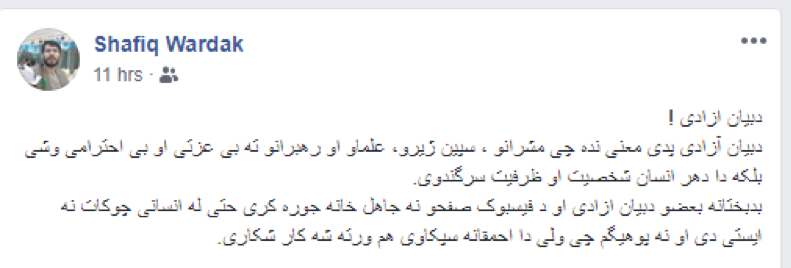
Analysts: Do not trust unproved accusations
Ahmad Saeedi, a political affairs expert, said some candidates and their supporters were leveling false accusations against their rivals because the culture of compatibility had not been institutionalized in the country. He believed such accusations would undermine the credibility of the accusers.
He added: “Some candidates use this method in order to increase their votes or reduce votes of others but this will hurt their personalities instead of benefiting them.”
He suggested people should not believe in such accusations. “These allegations are mostly rumors and could be true as well but the courts have to decide the facts,” Saeedi added.
Sayed Ali Fitrat, a psychology teacher at Kabul University, also said that people should not believe in accusations that lacked documents in support. Fitrat said those making baseless accusations actually wanted to hide their own weaknesses.
Fitrat said that relevant organs like the Independent Election Complains Commission (IECC) should not be indifferent to allegations against candidates and prosecute those making flase accusations.
He said some allegations could destroy beliefs and confuse people in choosing a candidate.
Accusations are electoral violation
Mohammad Qasim Ilyas, spokesman for IECC, said according to article 98 and 99 of election law, accusing candidates was also considered a violation besides insulting and humiliation because such allegations harm a candidate.
He added accusations on social media without proof were an election violation because anyone who had complaints, he/she should lodge them with the IECC and submit proof as well to support the allegations.
Without providing more details, he said the IECC had recorded 66 complaints so far and 70 percent of them had been scrutinized and the rest were under investigation.
He said some candidates had been warned and a number of violators fined according to the complaints.
Article 90 of Election Law, says: “The Central Complaints Commission and its provincial commissions may address issues that fall within the scope of their authorities in cases of existence of any objections or complaints and even in the absence of any objection or complaint.”
According to Ilyas, the IECC should investigate all registered and unregistered election violations but the commission has no power to control all social media pages. He said the IECC had to hire thousands of individuals if it wanted to control social media.
Facebook; Ask-less City
Yahya, a Facebook user, called Facebook Shahr-i-Naporsan (heedless city) and wrote: “Dozens of Facebook pages are working for presidential candidates, the Ministry of Telecommunication, Information Technology has the responsibility to monitor such Facebook pages and stop them because such accusations have huge a impact on public opinion and can stop people from vote.”

Sher Shah Nawabi, a media official with MTIT, said the ministry had set up an office called “Cyber Security” two years ago and it was working in partnership with security organs and had handed over dozens of cases to judicial organs. But he added no one had so far registered complaint about accusations.
He said: “If a candidate complains that he\she is harmed by someone, the (Cyber Security) department should be contact and complaint registered there.
The complaint is initially fallowed up and the suspect is identified and referred to justice and judicially organs in accordance with the Afghanistan constitution, he continued.
He said the ministry would not be able to close personal pages of social media users until a perso or candidate filed a complaint.
Ahmad Shoaib Hasrat & Nahid Bashardost
Hits: 2638
Letter regarding ban on roaming during night is fake
KABUL (Pajhwok): The Ministry of Defence (MoD) and an expert have rejected the letter rega…
